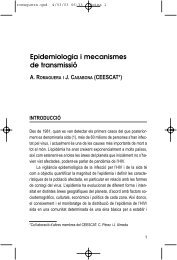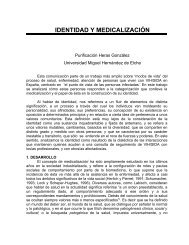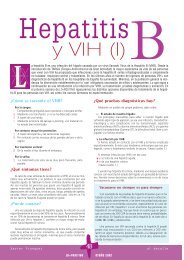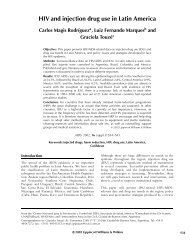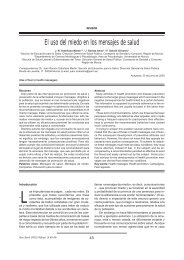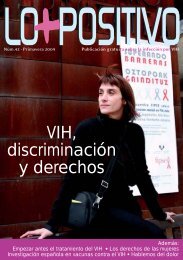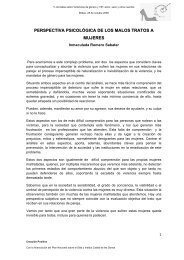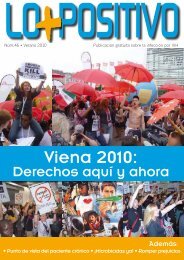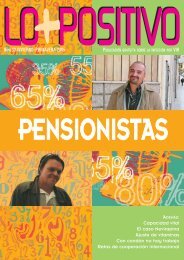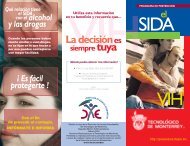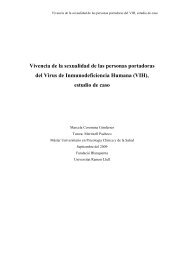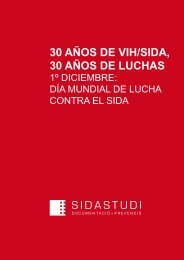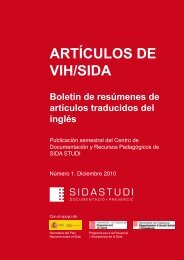Report - Sida Studi
Report - Sida Studi
Report - Sida Studi
Create successful ePaper yourself
Turn your PDF publications into a flip-book with our unique Google optimized e-Paper software.
Appendix 3: The three daily newsletters<br />
us that although all religions have troubles with these<br />
issues, they prize above all the sanctity of human life,<br />
human dignity, and their role in supporting and informing<br />
and thereby protecting young people.<br />
An agenda has been set for the partnership we demanded<br />
from the start of the meeting.<br />
Administration<br />
Just to remind you that tonight is a free evening. Work<br />
hard, then go and enjoy Lisbon!<br />
Newsletter 2<br />
A little poem<br />
HIV is very dangerous,<br />
Lots of people are dying<br />
Mostly young people<br />
Innocent children and dying<br />
Everyday in Africa<br />
Age between 25-40 years<br />
And those people in Africa<br />
Who are dying,<br />
Have no one to help them<br />
There is no treatment!!<br />
Here in Europe<br />
They get treatment<br />
So they can live long<br />
HIV is bad<br />
It makes us sad<br />
People are dying<br />
And children are hurt<br />
Uma, Lamair and Nimao<br />
15 years old from Somalia<br />
Welcome<br />
Welcome to the second edition of our conference newsletter.<br />
Apologies that we have not been able to make this<br />
available to you in languages other than English but<br />
resources do not permit us to cover all the languages represented<br />
here – which are many given that participants<br />
come from over fifty different countries. By now, we have<br />
all had an opportunity to enjoy of some of the charms of<br />
Lisbon, to get to know each other a little better and really<br />
get into our meeting. Some of you may not be aware<br />
what a different kind of meeting it is from any previous<br />
AIDS & Mobility meeting especially in terms of the extent<br />
to which it represents the people whose interests we are<br />
discussing – young people, people from migrant communities<br />
and migrants themselves and PLWHA.<br />
Young people doing it for themselves<br />
The high point for many people was the presentation<br />
yesterday afternoon of the Safe Sex Comedy Show from<br />
Amsterdam. This was a really exciting and fresh injection<br />
of youth into many people’s thinking about how to<br />
engage and reach young people with HIV/AIDS prevention.<br />
As they said, we really began, in a most concrete way, to<br />
‘talk about sex baby…’. Through the medium of theatre<br />
we heard from young women and young men about<br />
some of the realities of their lives – the nervousness and<br />
anxiety with which people approach their first sexual<br />
intercourse and especially the pressure boys feel under<br />
because of the assumption that, ‘…you gonna know what<br />
to do to’. We heard too about the career of ‘Mr Herpes’<br />
and his family of sexually transmitted diseases, the desperation<br />
and isolation felt by young women abandoned<br />
in pregnancy by young men who ‘…came and saw and…<br />
disappeared’ leaving them to become women who are<br />
still only ‘…a child carrying and growing a child inside’.<br />
There was a powerful call to challenge this sexism and<br />
that of the whole health system in the chant for ‘…heroes’.<br />
We followed a young man through his experiences of<br />
visiting a STI clinic and another who was ‘Janet trapped<br />
inside the body of John’ and another macho man ending<br />
with a challenge to deal with homophobia and sexism,<br />
and all other assumptions we make about other people’s<br />
sex and sexuality, to ‘mind our own’.<br />
I felt, like many others, deeply touched by the moments<br />
of recognition offered by this performance, by its sometimes<br />
brutal honesty. We were reminded that to speak<br />
directly to young people we should sometimes simply<br />
support them to do it for themselves.<br />
Workshops<br />
The first series of workshop meetings were the other<br />
main event of the day. Many people really enjoyed the<br />
opportunity to get into a smaller group environment,<br />
share their views, experiences and responses to the earlier<br />
part of the meeting. Of course, there was a feeling<br />
that the sessions were too short and there was, as always,<br />
more to say and do than could be fitted in. So much so<br />
that some people even came back to them in the time set<br />
aside for lunch. This is the place for a big thank you to<br />
our rapporteurs for all their help in recording these sessions<br />
and making it possible to identify some important<br />
highlights from across the sessions including:<br />
• Broad agreement on the importance of engaging in<br />
genuine partnerships in HIV/AIDS prevention and care<br />
– whether in the education of religious leaders, young<br />
people as health actors and recipients of health messages,<br />
other organisations or migrant communities and groups.<br />
• The importance of working from a rights-based<br />
approach which foregrounds the individual and the<br />
principles of self-determination and rights to dignity<br />
35



